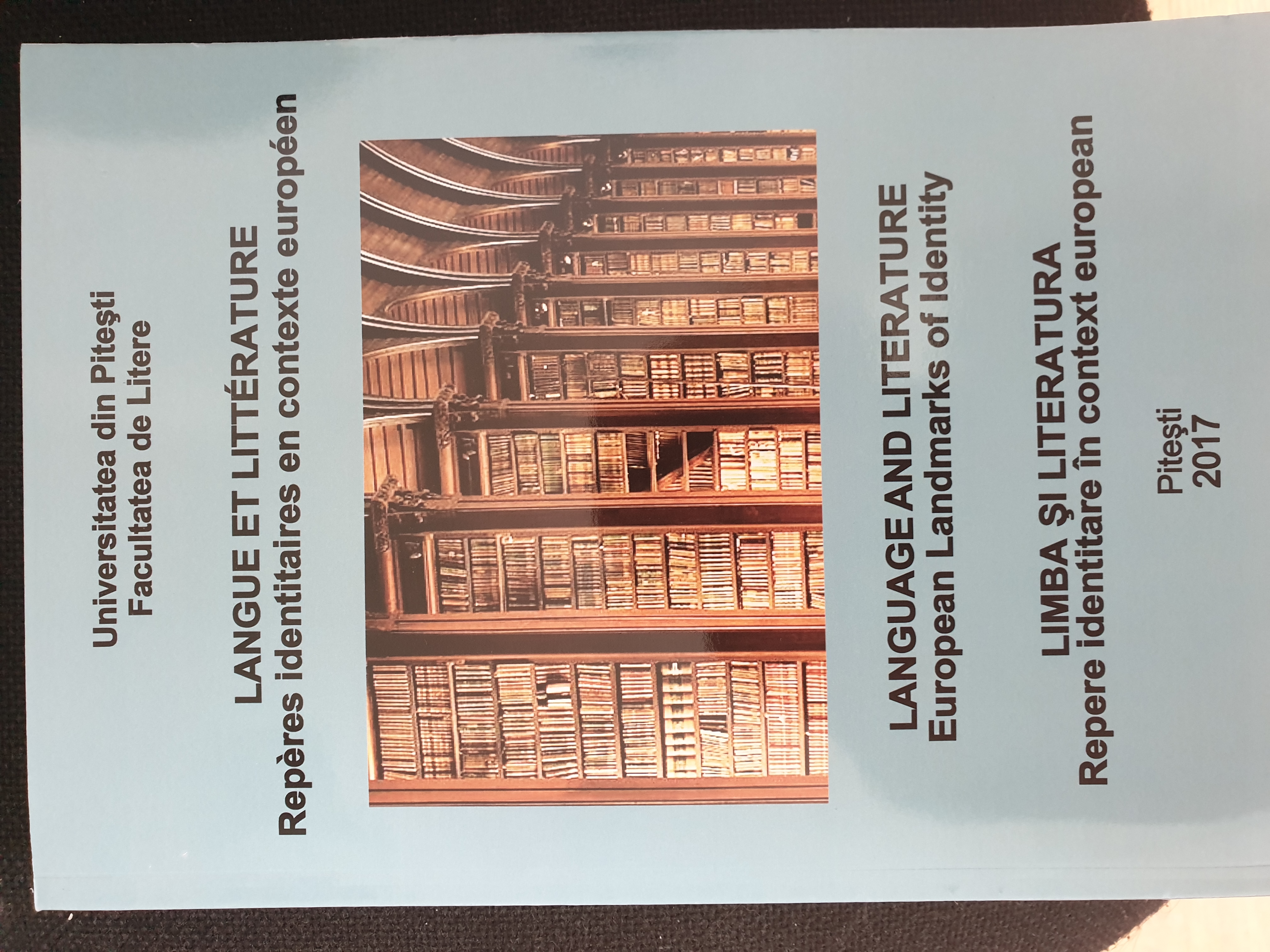LE FÉMININ COMME PASSAGE À L’AUTRE DE L’ÊTRE :
ENTRE BROSSARD, LEVINAS ET DERRIDA
FEMININE AS A PASSAGE FROM ONE TO ANOTHER - BETWEEN BROSSARD, LEVINAS ET DERRIDA
Author(s): Hugo AmaralSubject(s): Gender Studies, Social Philosophy
Published by: Editura Universităţii din Piteşti
Keywords: feminine; literature; Deconstruction
Summary/Abstract: Like a stone dropped into a still body of water, Nicole Brossard’s oeuvre was never extraneous to the urgency of denouncing the phallocentric and heteronormative bedrock of Western culture, which has always neutralized singularity and difference. As an injunction to responsibly rethink the identity and cultural constructions of women, Brossard’s literary and theoretical writing is at the same time, and even paradoxically, an exemplary testimony of a new thought on the feminine – a “feminine” that nourishes desire, creativity and hope, while carving a new body for language, but a “feminine” that is thought differently from the essentializing and fetishistic meaning of the term, thought before and beyond the biological, the ontological, the sociological, the political and the cultural, that is to say, a “feminine” outside itself, undecidable, dissymmetrical, incalculable, virtual or holographic, previous to the positioning in identity or sexual (or gender) difference/classification, rebellious to the catalogue of “women’s writing”, and therefore rebellious to conceptualization, representation and every sort of sovereign appropriation. All around the exorbitant Brossardian corpus, the motif of an aerial vision of a feminine body that goes beyond the very thinking of Being and Dialectics appears to us, in the light of the Derridean Deconstruction and the Levinasian Metaethics, as an exergue calling for reading and thinking in a new and an absolute different manner the absolute alterity of the “feminine” in its relation to language and literary writing, as well as the ethico-political implications of this relation.While displacing the traditional significations of body, subject, gender and writing, and therefore rendering them spectral and heterogeneous, this other “feminine” is, actually, the very condition of possibility to dream about a “feminism to come” – a certain hyper-radical feminism or “avant la lettre”, thought as an affirmative law, emancipatoryof the singularity of the other.
Journal: LIMBA ȘI LITERATURA – REPERE IDENTITARE ÎN CONTEXT EUROPEAN
- Issue Year: 2017
- Issue No: 21
- Page Range: 11-18
- Page Count: 8
- Language: French

